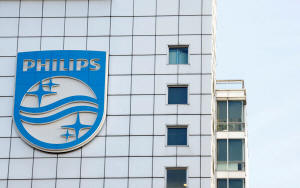Tests clear recalled Philips sleep apnoea machines of health risks
-company
 Send a link to a friend
Send a link to a friend
 [May 16, 2023]
AMSTERDAM (Reuters) -Dutch medical devices maker Philips said on
Tuesday that independent tests have shown that the use of its
respiratory devices involved in a major global recall did not cause
health risks for patients. [May 16, 2023]
AMSTERDAM (Reuters) -Dutch medical devices maker Philips said on
Tuesday that independent tests have shown that the use of its
respiratory devices involved in a major global recall did not cause
health risks for patients.
Philips said "rigorous testing" by external parties on the range of
DreamStation machines used to treat sleep apnoea showed positive
results, confirming preliminary results released last year.
"We are very pleased with these results, it is very important for
patients to know that the use of the devices did not lead to a health
risk", Philips Chief Executive Roy Jakobs told Reuters in a phone
interview.
"It proves we have worked with a safe product, even though it might
degrade."
Amsterdam-based Philips has been grappling with the fallout of the
global recall in June 2021 of millions of respirators used to treat
sleep apnoea over worries that foam used in the machines could become
toxic.
It said exposure to particulate matter emissions and volatile organic
compounds from degraded foam in DreamStation devices was "unlikely to
result in an appreciable harm to health in patients".
Philips had already said last year that tests indicated foam degradation
was very rare and was linked to the use of unauthorised ozone-based
cleaning products.
[to top of second column]
|

Logo of Dutch technology company Philips
is seen at its company headquarters in Amsterdam, Netherlands,
January 29, 2019. REUTERS/Eva Plevier
 It now added that foam degradation
as a result of such cleaning was also unlikely to result in
appreciable harm.
Philips shares were up 3% in early Amsterdam trading.
Philips has lost around 70% of its market value since announcing the
recall, as investors feared large litigation bills from a string of
lawsuits launched by worried patients.
The DreamStation machines included in the tests cover 95% of all
recalled devices, Philips said.
The company expects test results for the remaining 5% to become
available in the third quarter of 2023.
(Reporting by Bart Meijer; Editing by Kirsten Donovan and Bernadette
Baum)
[© 2023 Thomson Reuters. All rights
reserved.]This material may not be published,
broadcast, rewritten or redistributed.
Thompson Reuters is solely responsible for this content. |